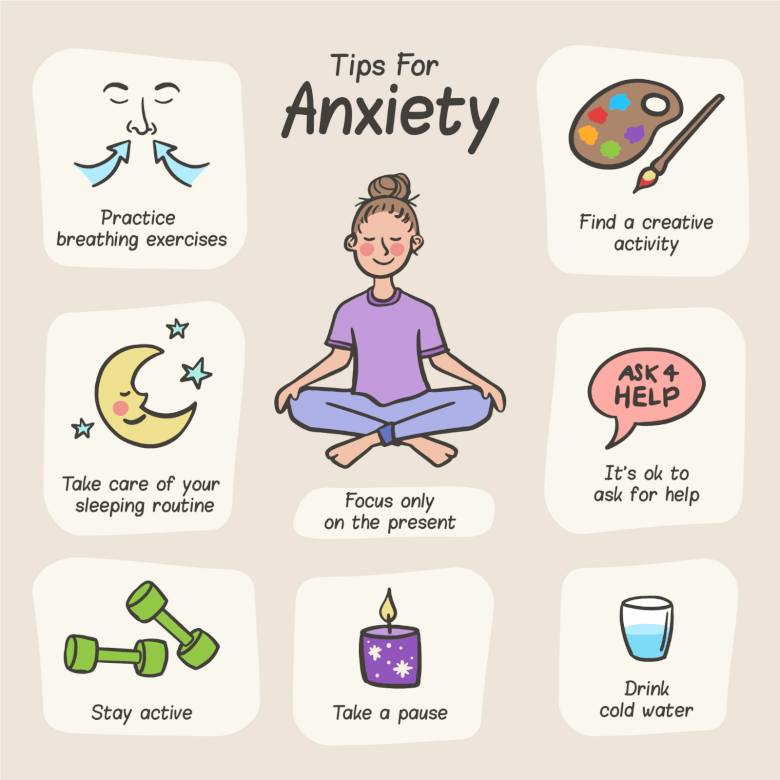Anxiety disorders are a group of mental health conditions characterized by excessive and persistent feelings of fear, worry, or nervousness. These conditions affect millions of individuals worldwide, often leading to a significant decrease in their quality of life. Understanding the causes behind anxiety disorders and knowing effective coping strategies are crucial for managing and overcoming these challenges.
Causes of Anxiety Disorders
Anxiety disorders can stem from a combination of genetic, environmental, and psychological factors. While the exact causes may vary from person to person, here are some common contributors:
1. Genetics
Research suggests that individuals with a family history of anxiety disorders may have a higher likelihood of developing them. Genetic factors can influence the regulation of chemicals in the brain, impacting an individual's response to stress and anxiety-inducing situations.
2. Brain Chemistry
Imbalances in certain neurotransmitters, such as serotonin, dopamine, and gamma-aminobutyric acid (GABA), can play a role in the development of anxiety disorders. Disruptions in the normal functioning of these neurotransmitters may lead to excessive and abnormal responses to stress.
3. Environmental Factors
Childhood trauma, stressful life events, and ongoing exposure to challenging environments can contribute to the development of anxiety disorders. These factors can alter an individual's perception of safety, leading to heightened anxiety levels in various situations.
4. Personality Traits
Some individuals may possess personality traits that make them more susceptible to anxiety disorders. For example, being highly self-critical, having low self-esteem, or being prone to excessive worry can increase the risk of developing anxiety-related conditions.
Coping Strategies for Anxiety Disorders
While anxiety disorders can feel overwhelming, there are effective coping strategies that individuals can utilize to manage their symptoms and regain control of their lives. Here are some strategies that may help:
1. Seek Professional Help
Consulting a mental health professional, such as a therapist or psychologist, is crucial in understanding and addressing anxiety disorders. These professionals can provide valuable guidance and support through therapies such as cognitive-behavioral therapy (CBT) or medication if necessary.
2. Practice Relaxation Techniques
Learning and implementing relaxation techniques can significantly reduce anxiety levels. Activities like deep breathing exercises, meditation, yoga, or engaging in hobbies that promote relaxation can help calm the mind and alleviate symptoms.
3. Maintain a Healthy Lifestyle
Eating a well-balanced diet, getting regular exercise, and prioritizing sufficient sleep are essential for overall mental well-being. Engaging in physical activity stimulates the release of endorphins, which act as natural mood enhancers.
4. Challenge Negative Thoughts
Identifying and challenging negative thoughts or cognitive distortions can be helpful in managing anxiety. Cognitive restructuring techniques, such as reframing negative thoughts into more positive and realistic ones, can change the perspective and reduce anxious feelings.
5. Establish a Supportive Network
Building and maintaining strong relationships can contribute to better mental health. Sharing concerns and seeking support from trusted friends, family, or support groups can help individuals feel understood and validated, reducing anxiety.
6. Practice Self-Care
Engaging in self-care activities, such as taking breaks, pursuing hobbies, and engaging in activities that bring joy, can have a positive impact on anxiety management. Prioritizing self-care helps in reducing stress levels and promoting emotional well-being.
Conclusion
Anxiety disorders can significantly impact an individual's life, but it is important to remember that there are coping strategies that can help manage and alleviate symptoms. Understanding the causes behind anxiety disorders, along with implementing effective coping strategies, empowers individuals to take control of their mental health and achieve a better quality of life.
